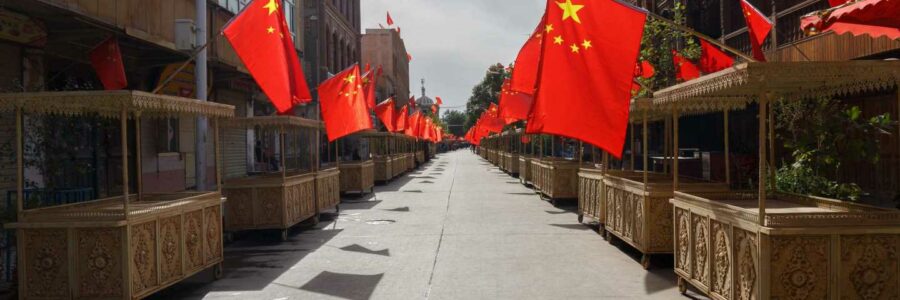
Retail Lobby Groups Want ‘Clarity’ on Forced Labor Enforcement
As Congress considers new import prohibitions targeting human rights violations of Uighur workers in China’s Xinjiang region, retail lobby groups want to know how the U.S. Customs and Border Protection would implement new rules on forced labor.
On Wednesday, retail industry lobby groups including the American Apparel & Footwear Association, Retail Industry Leaders Association, the National Retail Federation and others told Congressional leaders that any forthcoming rules should come with a “ transparent, tiered, risk-based approach to enforcement” before they go into effect.
In March 2020, the Congressional-Executive Commission on China, an agency that tracks human rights issues in China, found that materials and goods including cotton, textiles and shoes were likely to involve some amount of forced labor in their production.
The agency’s report at the time also listed Nike, Adidas, H&M, Patagonia and Tommy Hilfiger among companies that it suspects of “directly employing forced labor or sourcing from suppliers that are suspected of using forced labor.”
But the retail groups argued in their letter that new prohibitions should scrutinize “the worst actors first” and allow companies “the necessary time to shift sourcing to be more confident that supply chains are not connected to XUAR.”

Related Gallery
Valentino Couture Spring 2021
The retailers’ letter to Congressional leaders, including House Speaker Nancy Pelosi, follows former Secretary of State Mike Pompeo’s statement earlier this month about the “genocide” of Uighurs in China, as well as the CBP’s recent moves to step up enforcement against goods made with cotton from the region.
Last fall, the House also passed the Uighur Forced Labor Prevention Act, which would ban imports from the Xinjiang region, though the measure has yet to pass the Senate.
“Additional efforts should take stock of measures that have already been taken, ensure administrability, and provide all stakeholders a clear, effective and enforceable path forward on reaching our shared goal — ending forced labor in the [Xinjiang Uighur Autonomous Region] and the larger campaign of oppression it fuels,” the groups wrote in the letter.
The CBP has used withhold release orders to scrutinize imports they suspect involve goods made with forced labor, which U.S. laws already prohibit through the Trade Facilitation and Trade Enforcement Act in 2015.
But the retail groups said Wednesday that the CBP should have to disclose more information about when it used WROs, and the evidence behind its decision-making.
“In order to make any action more effective under the forced labor statute, any Congressional action must establish a clear and transparent process, based on clear evidentiary standards, for issuing a WRO,” the groups said. “Further, the evidence that led to the WRO should be made public.”
The groups said Congress should also outline standards on what information importers should submit in order to prove their supply chain did not involve forced labor.
Source: Read Full Article